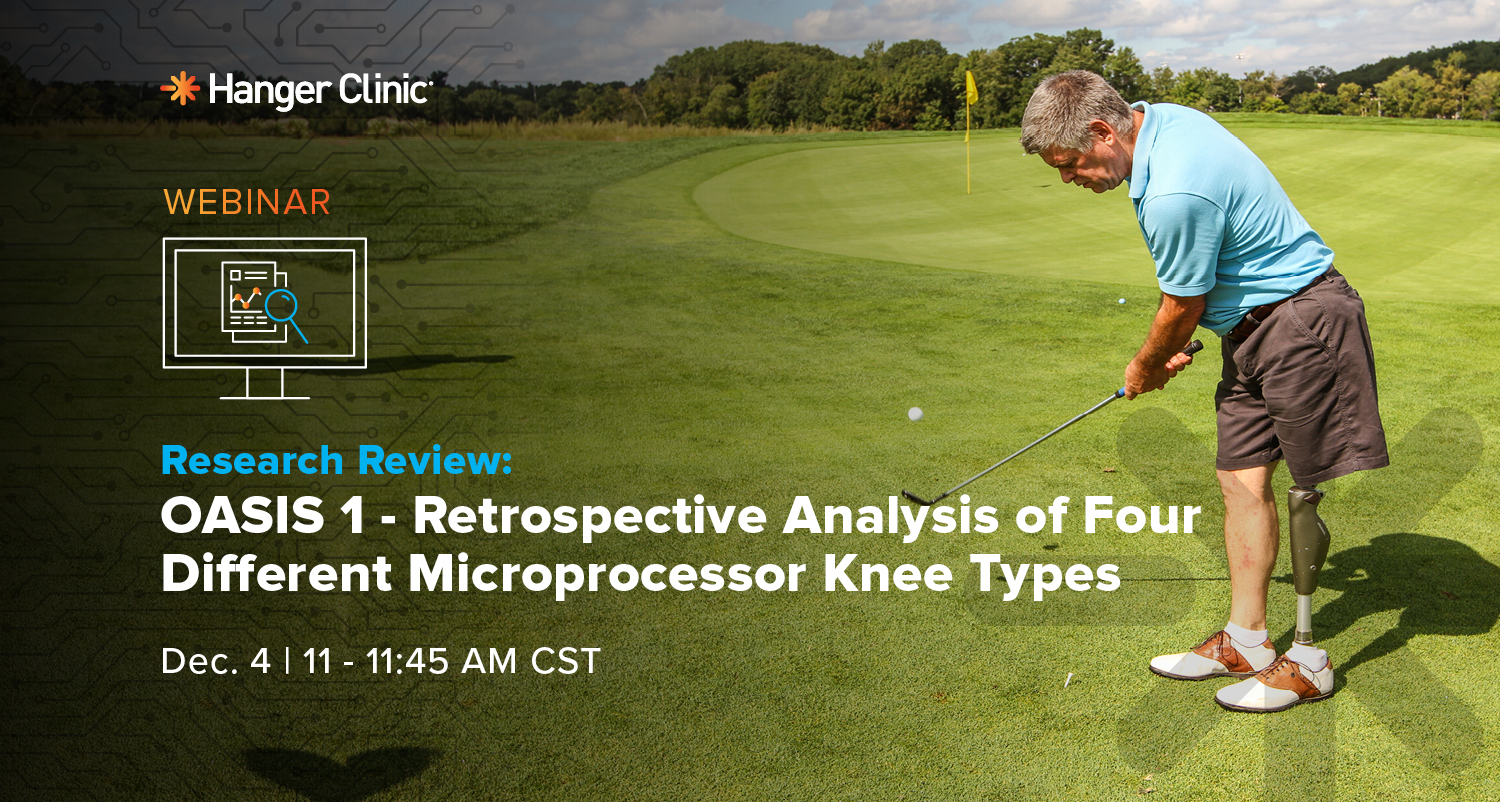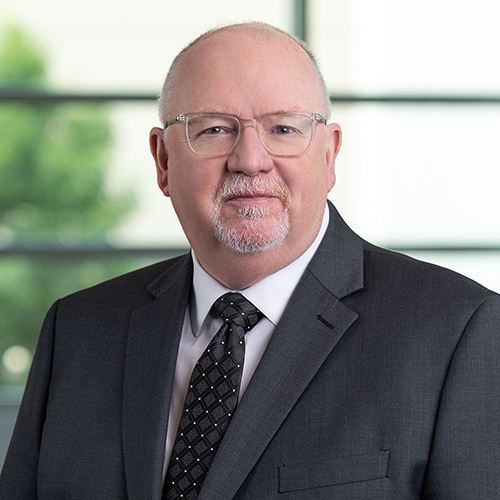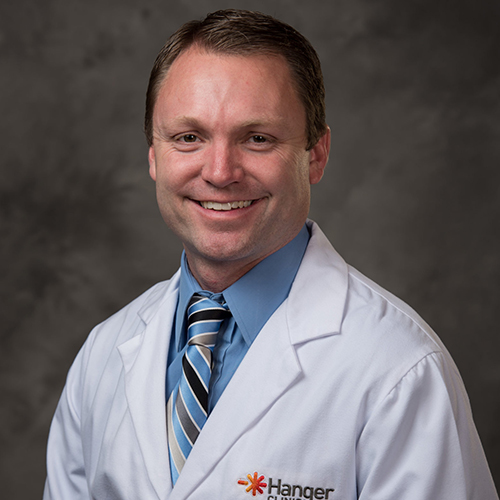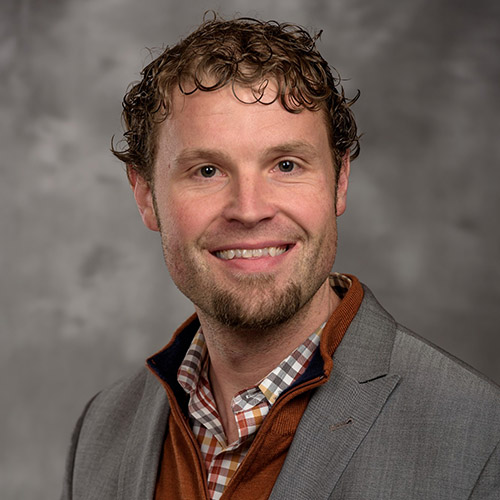Research Review: OASIS 1 – Retrospective Analysis of Four Different Microprocessor Knee Types

Date and Time
Location
Virtual Event
Credits: 1 (S) CEU through ABC.
Category I science credits will be granted to those O&P Clinicians certified with ABC.
Conducting meaningful clinical research is critical for providing effective patient care and informing clinical decisions across disciplines. As research continues to evolve and advance in the field of O&P, such clinical insight is paramount to helping support professionals in determining the best possible treatment for each individual who requires O&P services.
For this session, we will dive into a new study recently published by Hanger Clinic’s Department of Clinical and Scientific Affairs. A first-of-its kind, OASIS 1, compares four different microprocessor knee models as they relate to outcomes in the areas of mobility, satisfaction, quality of life, and injurious falls.
Join us as research and clinical leaders reflect on the current state of literature surrounding this topic, including findings and implications as they relate directly to the OASIS 1 study.
About OASIS: Outcomes ASsessment and DISsemination (OASIS) 1 is the first in what is intended to be a series of studies comparing the effectiveness of a variety of orthotic and prosthetic components across different patient groups to ultimately impact and enhance patient outcomes.
Objectives
Upon completion of this program, learners will be able to:
- Discuss the current state of literature as it relates to comparative data among MPKs
- Compare four different microprocessor knee types as they relate to various constructs
- Discover ways in which such clinical insight can inform patient care and treatment options for individuals requiring O&P services
Watch the Recording
Moderator

Molly McCoy, L/CPO
Clinical Communications, Clinical & Scientific Affairs, Hanger Clinic
With over 20 years of experience in the field, Ms. McCoy has worked as a clinician, educator, and technical adviser in all settings from independent small practices to level one trauma hospitals, nursing and rehab centers, and pediatric outpatient specialty clinics.
Speakers

James Campbell, PhD
SVP and Chief Clinical Officer, Hanger Clinic
Dr. Campbell has 40 years of experience in the orthotics and prosthetics profession with distinction in leadership and research. He serves as Hanger’s Chief Clinical Officer.

Phil Stevens, MEd, CPO/FAAOP
Director, Clinical & Scientific Affairs, Hanger Clinic
Mr. Stevens develops evidence-based clinical programs for Hanger Clinic, designed to help patients improve their orthotic and prosthetic outcomes.

Shane Wurdeman, PhD, CP, FAAOP (D)
Director, Clinical Research, Hanger Clinic
Dr. Wurdeman has published numerous studies in peer-reviewed journals. In addition to his research work, he continues to manage a patient case load with Hanger Clinic.